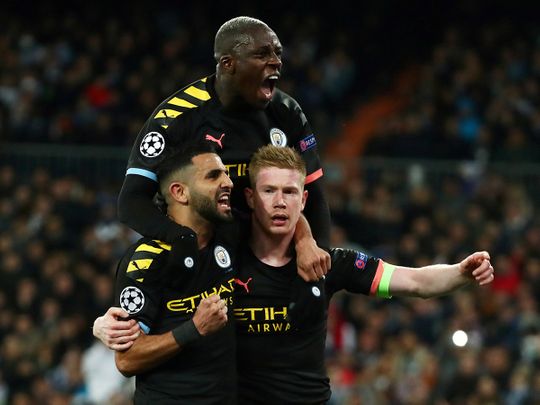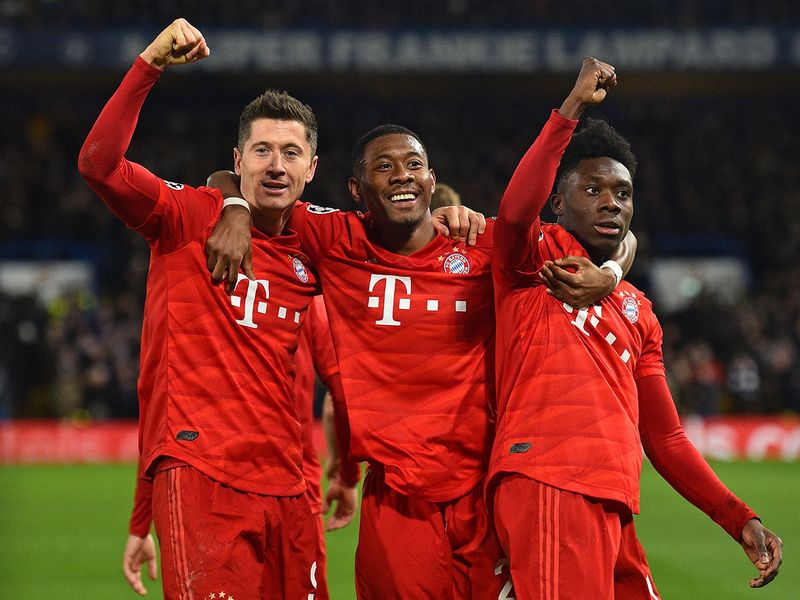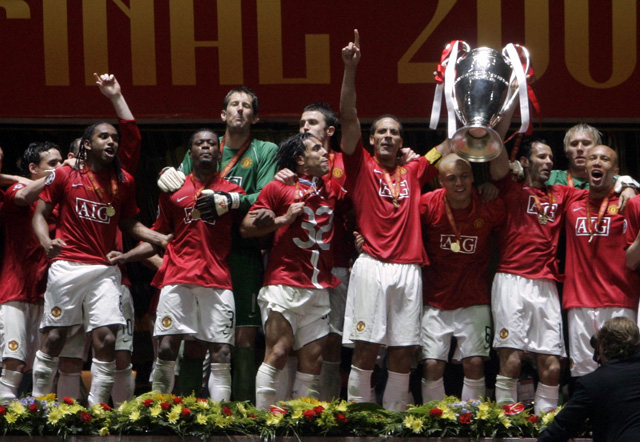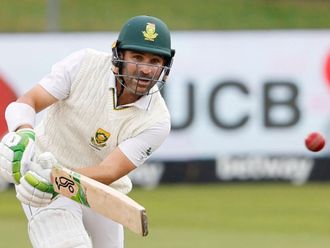
Madrid: Thank goodness for those 10 minutes, when Gabriel Jesus and Kevin de Bruyne scored, Sergio Ramos walked, the Bernabeu fell silent and Real Madrid fell apart.
Until then, this had been an ignominious round of Champions League fixtures for the Premier League. Liverpool, imperious in domestic games, had lost to Atletico Madrid, failing to muster a single shot on target. Tottenham, stripped of their two most potent strikers, had lost 1-0 at home to RB Leipzig, who were playing their first knockout game in Europe’s elite tournament.
And, most damning of all, Chelsea had been swept aside by Bayern Munich, losing at home, 3-0. Bayern had made all the right noises before the game: pointing out that Chelsea had the vim and verve of youth; suggesting that perhaps the English team’s strengths might exploit their weaknesses. It was all smoke and air. If there is one thing that is worse than losing, it is being patronised before it.
For 75 minutes or so, it looked as if Manchester City might complete the set for England’s representatives: four games, four defeats, no goals.

Eventually, though, the superiority of Pep Guardiola’s team told. Zinedine Zidane, his Real Madrid counterpart, has never failed to win the Champions League as a coach. That record, barring a remarkable turnaround at the Etihad Stadium — a two-goal victory, without either Ramos, his captain, or the injured Eden Hazard — has about three weeks to run.
The prospects of the other English teams joining Manchester City in the quarter-finals are more distant. Chelsea, it has to be assumed, will travel to Munich with no greater ambition than saving face. Tottenham’s task in Leipzig is less daunting, but their form in recent weeks is not encouraging.

Liverpool’s beating Atletico at Anfield is not impossible. Getting through the evening without a resurgent Atletico scoring — meaning the reigning European champions would need three goals against Diego Simeone’s obdurate defence — is a different matter. One year after the Premier League occupied all four slots in Europe’s major finals, it might find City its lone standard-bearer at the game’s highest level.
That, of course, would dovetail nicely with the theory that the Premier League this year is poorer than it has been for some time. So far, the supporting evidence has been, in short, that Liverpool have too many points and that the remaining members of the traditional Big Six have too few.
The league, the conclusion goes, must therefore be diminished. Seeing Chelsea and Tottenham, in particular, knocked out of the Champions League would lend weight to that idea. Should Liverpool go, too, it might be seen as proof that Jurgen Klopp’s team is not quite as era-defining as reported.

There are three problems with all this. One is that using the health of the Big Six to discern the strength of the Premier League is flawed. There is no debate that Manchester United, Tottenham, Arsenal and Chelsea are worse than normal. But Wolves, Sheffield United and Leicester are all far better than normal.
No team has quite been detached — yet — at the foot of the table, either; the points total required to stay up is likely to be higher than it has been in recent years. A league can surely be measured as much by its strength in depth as by the quality of an arbitrary number of teams at the top.

The Premier League was at its strongest in the late 2000s and early 2010s, when Arsenal, Liverpool, Manchester United and Chelsea all reached Champions League finals, Manchester City were starting to emerge, and Everton and Aston Villa menaced the elite. But lower down the table, teams were much less sophisticated, much less adventurous, much more pliant. Perhaps this version has a far shallower peak. Its base, though, may be sturdier.
The second problem is that the Champions League is an imperfect gauge, even for supporting evidence. With different draws, or better luck with injuries, both Chelsea and Tottenham might have made it through. One year is a tiny sample size, both to establish a league’s dominance and to assess its decline. The variation in any one season is simply too great.
But the third and most important problem is that the whole subject is meaningless. The English are curiously obsessed with the idea of ranking leagues. It is driven by the relentless, screeching marketing of the broadcasters who show Premier League games.
Each one costs them somewhere in the region of $13 million for 90 minutes of action — plus VAR delays — so they are going to tell you what you are watching is pretty damn flawless, whether it is true or not. Declaring the Premier League the best in the world inevitably suggests that all the others are in some way lacking, and it is natural that fans of those leagues should bridle at the suggestion.

But the reality is that all of Europe’s top five leagues are similar: perhaps not in style but in the level of quality. That is why Atletico can beat Liverpool, and Manchester City can beat Real Madrid, and Lyon can beat Juventus. It is, in essence, why the Champions League is so exciting.
The raw output — the number of goals and shots and crosses — is broadly the same. There are variations in tempo and delivery, but they are preferences brought about by cultural conditioning. One is not objectively better or worse. The only differentiating factor, at heart, is how much all of it seems to matter, and that is personal. The one that you think is best, in all likelihood, is the one that has your team in it, because that is the one that has the most crucial ingredient of all: meaning.
It takes a lot to force football to allow events in the real world to interfere with its single-minded, self-regarding focus. Ten years ago, when the ash cloud from the Eyjafjallajokull volcano grounded flights worldwide, football refused to be cowed: Barcelona took the bus to Italy to play Inter Milan; Liverpool took the train to Madrid to make sure a Europa League game could go ahead.

The reaction to the spread of coronavirus has, thus far, been broadly the same: a few games called off in northern Italy last weekend, and Sunday’s game between Juventus and Inter — like Inter’s Europa League match on Thursday — to be played behind closed doors, but for the most part the sport’s authorities are doing all they can to get on with things.
It is simultaneously an impressive level of resilience and quite remarkably pigheaded: to see the World Health Organisation warning of the threat of global pandemic at the same time as fans and officials debate when, exactly, Inter will make up its fixture deficit.
You do get the impression that, when the apocalypse comes, as the bombs are raining down, someone out there will be asking how, precisely, this affects the Champions League semi-finals (there will definitely be people complaining about VAR).
But if the virus continues to spread at the current rate, serious questions will have to be asked, not only about the viability of allowing fans to travel for European games but also about Euro 2020 itself. The tournament is scheduled to be held across the continent, after all, with fans flying from Bilbao, Spain, to Baku, Azerbaijan, and every point in between. At what point do we accept that something has to give?








